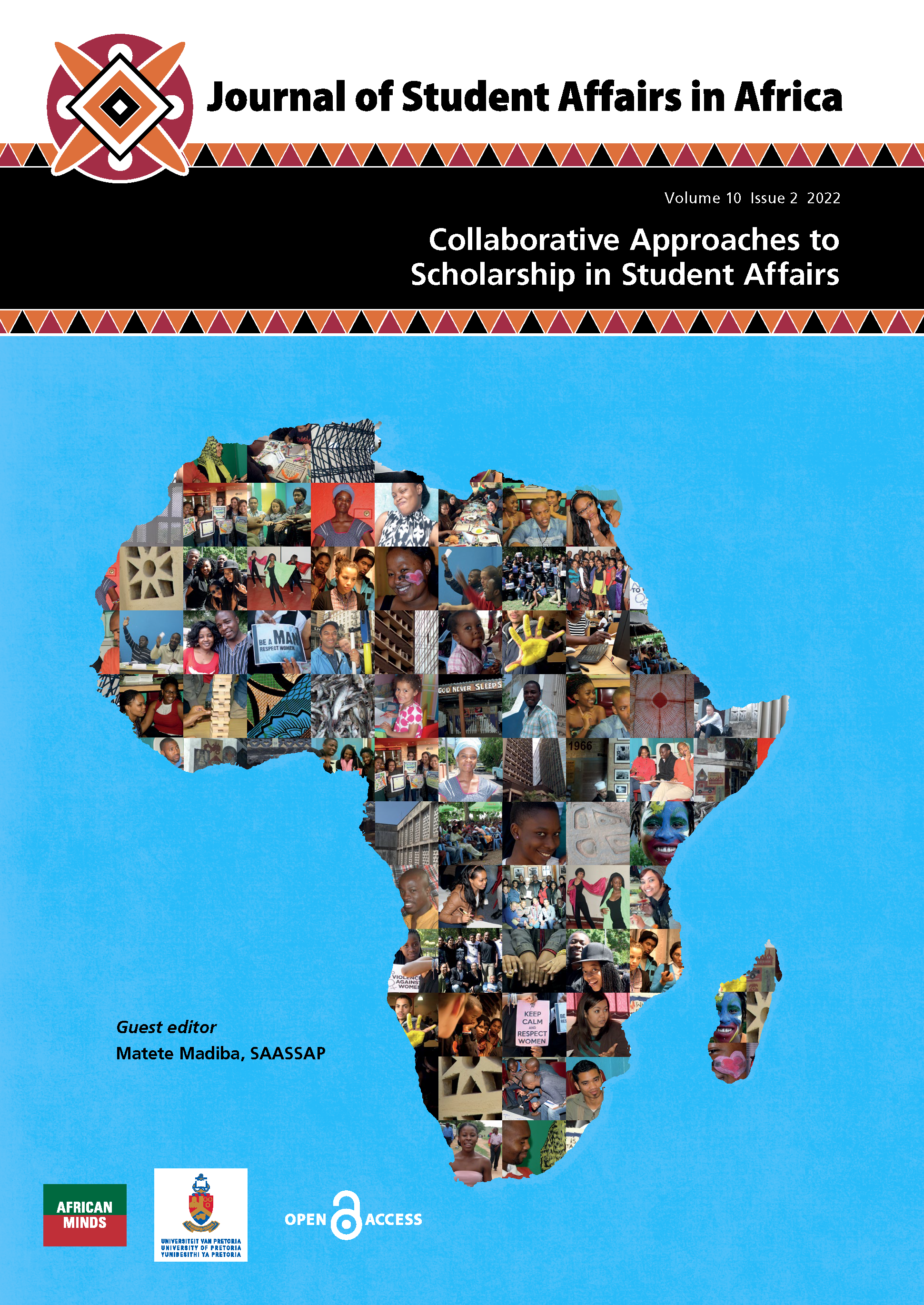Demographic and Systematic Factors Affecting Student Voter Turnout: An Empirical Study For Africa’s Largest Distance Higher Education Institution
DOI:
https://doi.org/10.24085/jsaa.v10i2.3574Abstract
Public HEI’s in South Africa conducts the Student Representative Council elections yearly, however, there is a paucity of studies to determine factors that affect voter turnout. This descriptive quantitative study conducted an empirical analysis of factors influencing student’s voter participation at Africa’s largest Open Distance eLearning (ODeL) institution. An electronic survey instrument was distributed amongst the sampled students and yielded a final response count of 6 851. A joint descriptive statistical analyses and a binary logistic regression model were applied to analyse data. Regression analysis revealed that there was a significant relationship between students having encountered one or more of marketing initiatives employed in the election project and voter participation. This positions marketing as a significant predictor of student voting given that respondents who encountered the SRC election marketing initiatives were seven times more likely to vote, as shown by the Odds Ratio of [OR=7.9 (95% CI:6.6-9.3), p=0.001]. The second-highest predictor of voting in this study was the closing date impact; students respondents who indicated that the voting period was long enough were two times more likely to vote compared to those who did not believe it was long enough [OR=2.2 (95% CI: 1.9-2.7), p-value <0.001]. Other significant predictors of SRC voting include gender, employment status and qualification level.Wherease study reveals a fair balance between the influence of demographic and systematic factors on SRC electoral process; institutions need to pay close attentention to systematic factors as they have great potential to constrain voter participation.
Downloads
Published
Issue
Section
License
Copyright (c) 2022 Tshegofatso Mogaladi, Motlatso

This work is licensed under a Creative Commons Attribution-NonCommercial-ShareAlike 4.0 International License.
Authors who publish with this journal agree to the following terms:
Authors retain copyright and grant the journal right of first publication with the work simultaneously licensed under the Creative Commons Attribution Share-alike 4.0 International License that allows others to share the work with an acknowledgement of the work's authorship and initial publication in this journal.
Authors are able to enter into separate, additional contractual arrangements for the non-exclusive distribution of the journal's published version of the work (e.g., post it to an institutional repository or publish it in a book), with an acknowledgement of its initial publication in this journal.
Authors are permitted and encouraged to post their work online (e.g., in institutional repositories or on their website) prior to and during the submission process, as it can lead to productive exchanges, as well as earlier and greater citation of published work (See: The Effect of Open Access).


